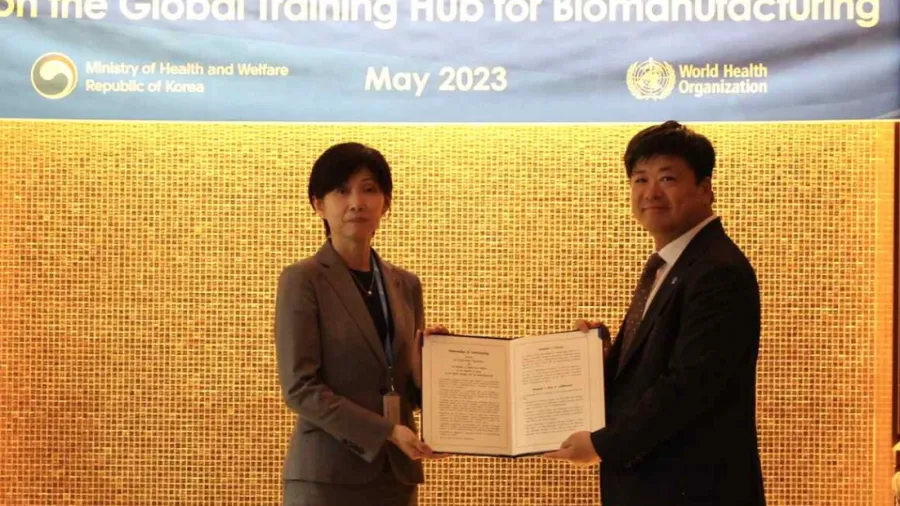
South Korea selects five regions to host bio training campuses for foreign workers
Foreign workers will be trained to produce biologicals like vaccines and therapeutics within the campuses.
Five regions in South Korea have been chosen to host the future global bio campuses dedicated to training biomanufacturing workers from developing countries, according to the Ministry of Health and Welfare.
The health agency said local training facilities will be built in Incheon Metropolitan City (Songdo), Gyeonggi-do (Siheung), Chungcheongbuk-do (Osong), Jeollanam-do (Hwasun), and Gyeongsangbuk-do (Andong)
Around 2,000 people from low- and middle-income countries will be provided with training and education within these campuses each year to hone their skills in manufacturing biological products like vaccines and therapeutics, said Hwang Seunghyun, director-general of the global vaccine hub office at the health ministry.
The Global Bio Songdo Campus, a joint venture between Incheon City and Yonsei University, will serve as the main campus which will host the Workforce Training Hub Support Foundation.
Slated to open towards the end of 2024, the Songdo campus will be built with a gross floor area of 3,300 square metres equipped with lecture rooms, labs, and offices.
The newly launched project forms part of the country’s commitment with the World Health Organisation (WHO) to set up “Global Training Hub for Biomanufacturing” in 2022.
The five locations were selected through a public contest aimed at selecting areas with training facilities, venue sites, and education capacity best suited to cater and integrate Korea’s bio-education capacity.
During the signing of a memorandum of understanding between the Korean government and WHO in May, WHO said establishing a global training centre will help boost local and regional production of biological products, such as insulin, monoclonal antibodies, and cancer medicines, among others.


















 Advertise
Advertise


